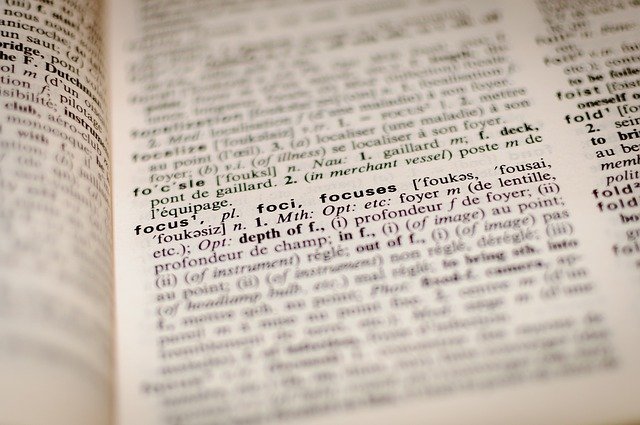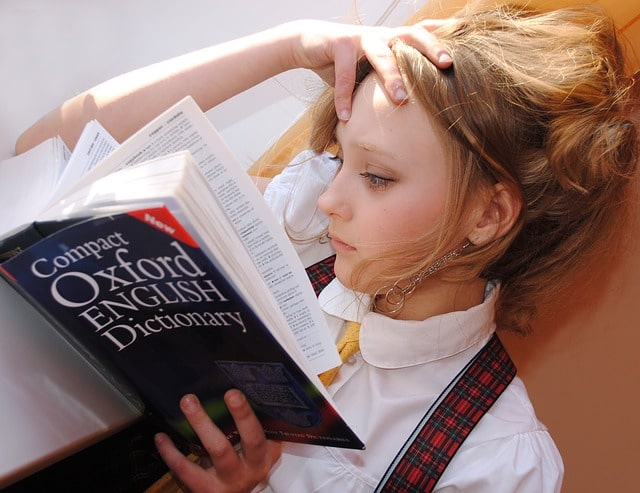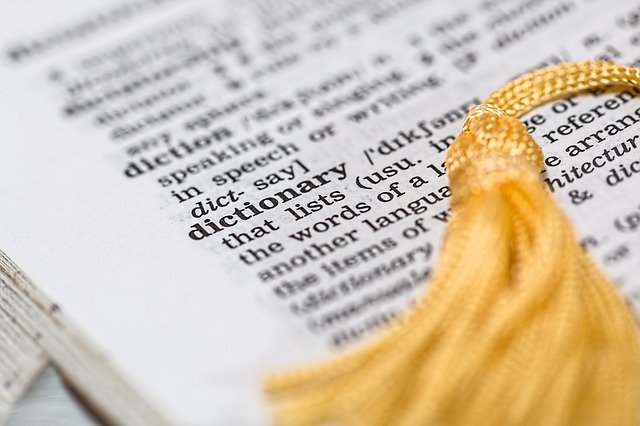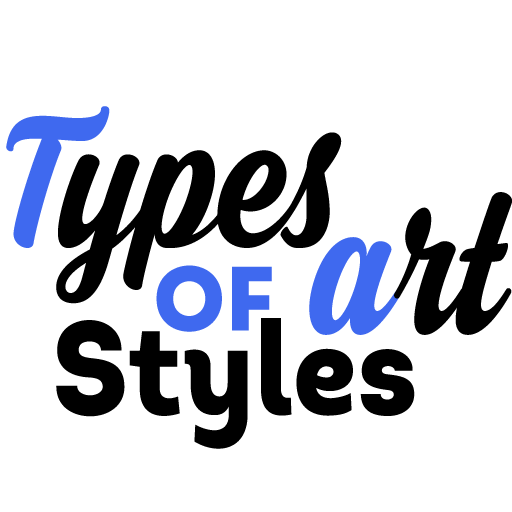Dictionary: what it is, meaning, parts, types of dictionaries, characteristics and origin
Contents
What is the subgenre dictionary?
It is one of the most important texts due to the content it maintains, since a dictionary is a work in which it is possible to consult terms of any kind, providing a meaning, definition, spelling and grammatical form, syllabic separation, pronunciation and even the etymology of the word.
This didactic subgenre is governed by lexicography, the discipline in charge of the realization and analysis of the dictionary in a critical way applied to language. On the other hand, it is currently possible to identify different types of dictionaries that focus on providing various aspects of the same word, although we will see this later.
Meaning of the subgenre dictionary
The term dictionary comes from the Latin dictionarium, which unites the word dictum, which refers to -indicate-, with the suffix -io-, which means -action and effect-, and the suffix arium, which refers to belonging. Thus, the dictionary is considered a type of text in which a repertoire of words that are part of a language is recorded with the intention of defining them, explaining, in addition, the function and use of each term.
Definition of the subgenre dictionary
The dictionary is a compendium of words that are organized alphabetically and contain their meaning respectively. In addition to including the meaning of each of the terms, they provide more information regarding their usage, spelling and so on. There are several types of dictionaries that can focus on a particular discipline or field.

What is the function of the dictionary?
Since the dictionary is a publication that gathers a large number of words organized alphabetically, it is used as a source of consultation for various areas or for universal subjects, since it records words of all kinds, depending also on its particular focus.
History and origin of the dictionary
The first known dictionary dates back to 600 BC, which is written in Akkadian, a language spoken in Mesopotamia, especially by Babylonians and Assyrians. By this time, local and foreign scholars constituted the team of translators, who were dedicated, among other things, to the elaboration of lists with terms that were accompanied by their corresponding equivalents. These lists were written on clay tablets that were placed in columns. Thus, the tablets became part of the Library of Ashurbanipal, becoming one of the main sources of knowledge in this area.
During the Middle Ages, the term used to refer to the compendium of words that today we call dictionary was glossarium, however, in the late Middle Ages, the term was changed to vocabularium and also to dictionarium, until it progressively reached the term we use today.
Nowadays, the dictionary is a reference book, either to find a general concept or to look for a specific term in a given discipline, there you will find the words organized in alphabetical order.
Characteristics of the dictionary subgenre
Now let’s look at a series of basic aspects to go deeper into this type of text:
Subject or content: the type of content varies according to the field to which the subject of the dictionary is directed, so that we can find a dictionary of terms in a certain area, which allows us to set the content according to a type of audience guided by particular interests.
Format: the traditional dictionary consists of a book of sheets with printed content, where a series of words are presented accompanied by different elements, among them and the most important: the definition or meaning of the main word. However, nowadays and thanks to technological advances, we can find dictionaries on the Internet where we can make immediate consultations.
Form of organization: as we mentioned, regardless of the type of dictionary in which it is focused, they all maintain the same organization, and this consists of following the alphabetical order in each of the words. This is the way in which the information is presented and it becomes a practical way when making a query.
Uses: although it fulfills a general function, which as mentioned above focuses on providing information about a word, there are also some alternative uses such as: improving and enriching the vocabulary, knowing its correct pronunciation and syllabic separation, identifying the way it is written, among others.
Reader or audience: since the dictionary may have a large number of fields available for specialization, it also has a variety of readers or individuals who particularly consult it. Thus, it can be a source of information for professionals in specific disciplines, researchers, specialists, students, teachers, but it is also useful for anyone who needs to know the meaning of any word.
Parts of the dictionary subgenre
Although the components, parts and approaches may vary according to the type of dictionary being approached, they often contain the following elements:
Item: refers to the divisions that the dictionary may have and that will be represented later, such as entry, etymology, meanings, examples, definition, and phrases made with them.
Definition: they explain the primitive concepts, but also those used more recently.
Meaning: these are the meanings that a single word can have, as well as the expression of the same.
Contributions: this area provides indications about its use, as well as phrases in which it can be found.
Synonyms and antonyms: many dictionaries include this section to identify them and thus provide a better sense of the word in context.
Entry: the part that heads each of the texts or lemmas written in bold and determines the lexical unit.
Etymology: refers to the origin of the word and where it comes from, as well as what it means and how it was created.
Pronunciation: it is the way in which the language is gesticulated, this will depend on the language in which the dictionary is in.
Grammatical category: refers to the classes of words organized according to grammatical properties, i.e., orders such as adjective, pronoun, verb, noun, conjunction, interjection, among others.

Types of dictionaries
According to the field to which they are addressed, intention or focus, but also to the origin of the words, we can find different types of dictionaries. Experts mention that there is an initial classification of dictionaries, which consists of diachronic dictionaries and synchronic dictionaries, from which the others are derived. These are:
Diachronic dictionaries
These are dictionaries that focus on the development of words of a specific language governed by a specific period of time. Thus, in this type of dictionaries we can find both historical dictionaries and etymological dictionaries.
Synchronic dictionaries
In this case, the dictionaries collect the lexicon of a given language at a given time, so that they can be dictionaries that gather equivalences of one language with another, technical dictionaries or others that contain certain factors of the language.
And from there we can identify the other types of dictionaries:
Etymological dictionaries
These are dictionaries that go into depth and explain the origin of a word, as well as the way in which they are composed, referring to each union to explain its origin, later on, as a whole.
Historical dictionary
This is a type of dictionary in which all the words that have existed in history are recorded, as well as their evolution.
Dictionary of synonyms and antonyms
This dictionary in particular, concentrates on offering a series of synonyms and antonyms of each of the words presented alphabetically, so it is considered one of the most useful texts in terms of vocabulary enrichment.
Encyclopedic dictionaries
These are dictionaries that are mixed with the characteristics of the encyclopedia, of which you can already find a complete section dedicated to this type of text. In this case, the dictionary adds information in relation to aspects such as historical events, places, relevant personalities, expressions, and other elements of importance in culture.
Technical dictionary
This type of dictionary gathers particular terms that are important for the development of specific processes or activities.
Bilingual dictionary
In this case, dictionaries take on a fundamental value in the process of learning a language, since they establish equivalences between the language to be learned and that of the mother tongue or local language, so that it offers forms of expression and translated meanings for the user.
Specialized dictionaries
These are texts that compile basic terms in a specific discipline. Among this type of dictionaries we can find dictionaries of arts, philosophy, literature, history, religion, social, biology, social sciences, among others.
Visual dictionary
It is a type of dictionary that includes images, so that it illustrates each of the meanings of the words from objects, situations, people, places, etc., that can give meaning to the term to which it is addressed.
Biographical dictionary
These are publications that, following alphabetical order, concentrate on the names of important figures or personages, in such a way as to present a biography of each one of them. There are, for example, biographical dictionaries of classical characters, authors, artists, etc.
How to write a dictionary?
To begin with, you should keep in mind that it is required to have knowledge about lexicography, the discipline that deals with the whole process of making a dictionary. But, on a general level, we can create a simple dictionary, so pay attention to the following:
Identify the type of dictionary
The first thing we must do is to identify the type of dictionary we are going to build, since the type of words we are going to include will depend on it, as well as the way in which the meaning will be presented, according to the specific parts that will go as we saw in the parts of the dictionary.
Once you have defined the type of dictionary, write down which are the parts to be included, also if it will have images and so on.
Documentation and research
Gathering the words that you are going to include in your dictionary can be a slow task, but it is necessary to go to documents, archives and all kinds of tools that allow you to identify which are the terms that you must include in the dictionary according to the field you have chosen.
These sources of information must be official, since the aim is to provide definitions that confirm a truthful answer.
Define to whom it is addressed
It is important that, when dealing with any type of text, we basically think about the person who is going to be interested in the content of the text we are proposing. Thinking about who is going to read the information allows us to identify a series of characteristics that are necessary at the time of starting to write and the way in which the content is adapted to facilitate the reader’s understanding, as well as the search process and other related topics of interest that may attract their attention.
Organize the information
Now that you have the sources and have chosen the terms and words that should be in the chosen dictionary, it is time to organize the information. For this part you should start writing down the meanings of each of the words, accompanied by the elements you have chosen, images, uses, pronunciation, etc.
Before or after you can start organizing the order of the words, remember to follow the alphabetical order, for this you can use an online tool, if you prefer, that organizes the list of words quickly so you can start writing.
Check the dictionary
Once you have done the above, it is time to review point by point. Reading through the entire text will allow you to identify the accuracy of the words you used to explain each of the terms in the dictionary.

Most important dictionaries of the dictionary subgenre
One of the most important publications at present and of the most important regulatory bodies of the Spanish language, is the dictionary of the Royal Spanish Academy. This dictionary has the advantage of being available online, so that you can access an updated dictionary with regulated information. There is also one of the most important etymological dictionaries, which is the Oxford English Dictionary.
